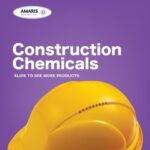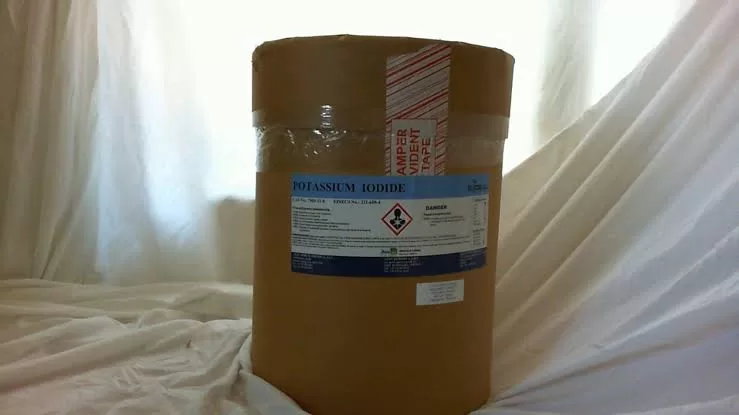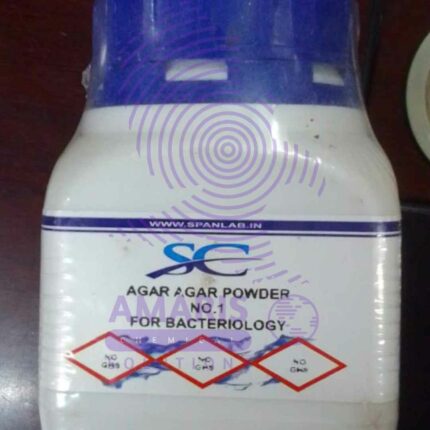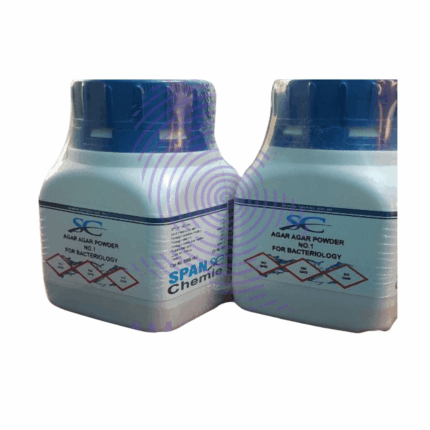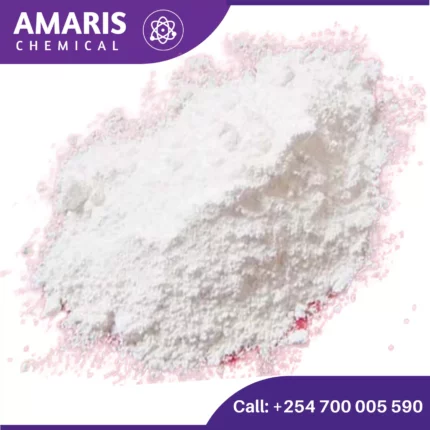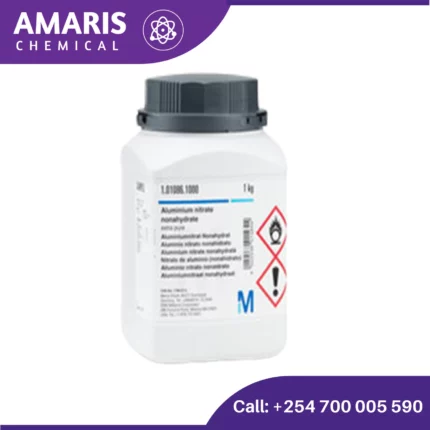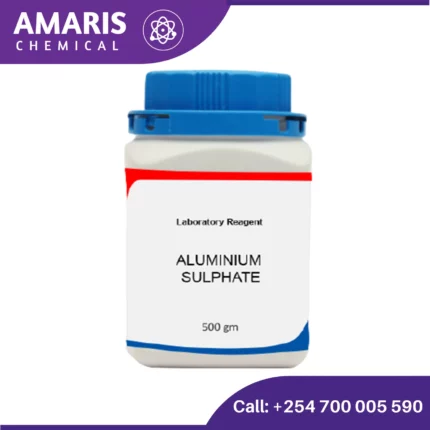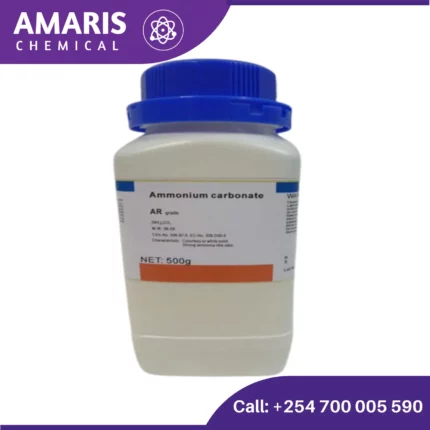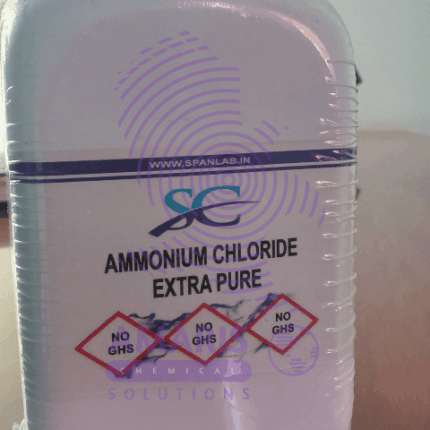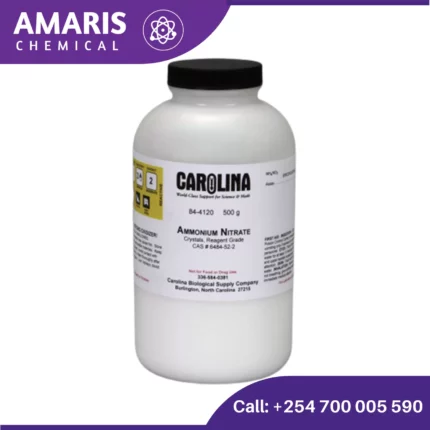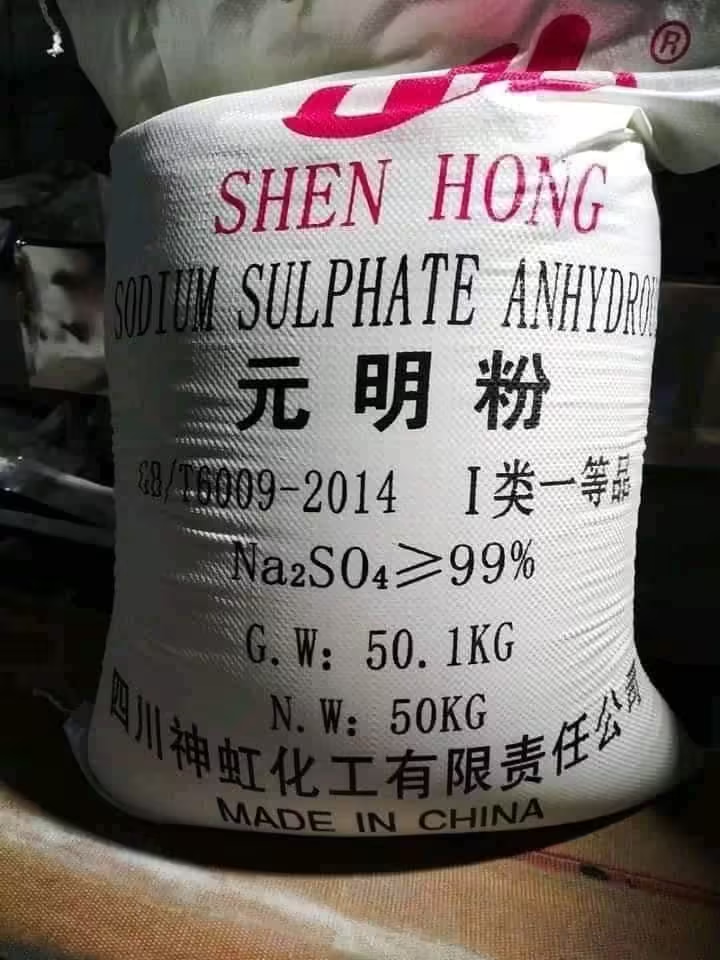“Aluminum Sulphate 500gm” has been added to your cart. View cart
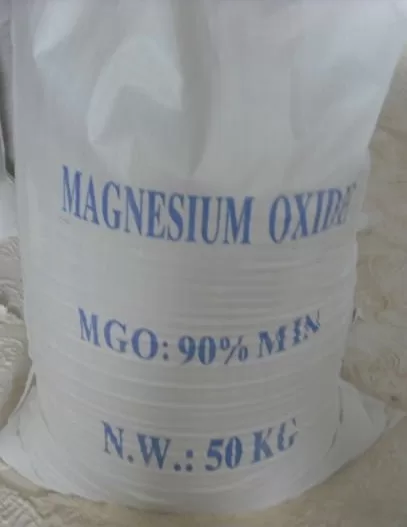
Magnesium oxide 25kg
$12,000.00 Original price was: $12,000.00.$1,100.00Current price is: $1,100.00.
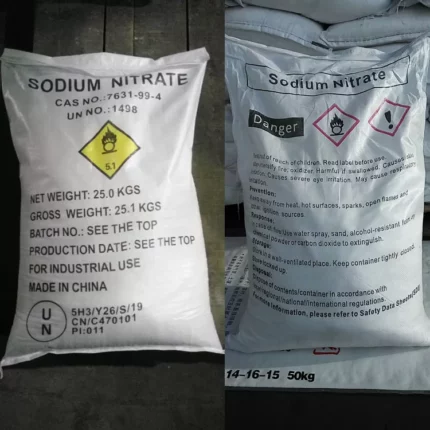
Sodium Nitrate 25kg
$10,500.00 Original price was: $10,500.00.$9,500.00Current price is: $9,500.00.
Potassium iodide
$8,000.00 Original price was: $8,000.00.$7,800.00Current price is: $7,800.00.
Whatsapp Order
Potassium iodide (KI) is a chemical compound composed of potassium and iodine.
SKU:
ACS59426CHEM0
Category: Analytical Reagents
Description
Potassium iodide
- Radiation Protection: Potassium iodide is known for its ability to protect the thyroid gland from radioactive iodine, particularly in the event of a nuclear accident or emergency. It saturates the thyroid with non-radioactive iodine, preventing uptake of radioactive iodine-131.
- Nutritional Supplement: Iodine is essential for thyroid function and overall health. Potassium iodide supplements can be used to prevent iodine deficiency, which can lead to thyroid disorders like goiter and hypothyroidism.
- Chemical Reagent: Potassium iodide is also used in various chemical reactions and laboratory procedures, including as a source of iodide ions in solutions.
- Photography: It has historical use in photography, particularly in the production of daguerreotypes.
- Medical Applications: In medicine, it can be used in certain treatments, such as in the management of some types of hyperthyroidism.
Related products
Agar Agar Powder
Agar agar powder refers to the dehydrated and powdered form of agar agar, a natural gelling agent derived from seaweed. It is made by drying and grinding the agar agar gel, resulting in a fine powder with excellent gelling properties. Agar agar powder is commonly used in cooking, baking, and food preparation as a vegetarian and vegan substitute for gelatin. It is prized for its ability to create firm and stable gels at relatively low concentrations and temperatures. Agar agar powder is versatile and can be used in a variety of recipes, including desserts, confectioneries, jams, jellies, and savory dishes.
Aluminum Hydroxide 250gm
Aluminium hydroxide is a chemical compound with the formula Al(OH)3. It is an inorganic compound that is commonly used as an antacid to neutralize excess stomach acid, as well as a component in the manufacture of various products, such as ceramics, paper, and cosmetics. It is a white, powdery substance that is insoluble in water and has a low toxicity. When heated, it decomposes to produce aluminium oxide, or alumina, which is used in the production of aluminium metal.
Aluminum Nitrate 500gm
Aluminum nitrate is a chemical compound with the formula Al(NO3)3. It's a salt composed of aluminum and nitrate ions. It's commonly encountered as a hydrate with varying numbers of water molecules associated with each aluminum nitrate formula unit. It's soluble in water and is often used in various industrial processes, including as a mordant in dyeing fabrics and in the production of aluminum oxide. Additionally, it's used in some chemical reactions and as a component in some types of rocket propellants.
Aluminum Sulphate 500gm
Aluminum sulfate, also known as alum, is a chemical compound with the formula Al2(SO4)3. It's commonly used in water treatment plants as a coagulant to clarify turbid or muddy water by causing suspended particles to clump together and settle out. In addition to water treatment, aluminum sulfate has various other industrial applications, such as in paper manufacturing, dyeing, and as a mordant in textile dyeing to help fix dyes to fabrics.
Ammonium Carbonate AR 500gm
Ammonium Chloride 500gm
Ammonium chloride is an inorganic compound with the chemical formula NH4Cl. It is a white crystalline salt that is highly soluble in water and has a salty taste. Ammonium chloride is often used in various industrial and laboratory applications, including as a flux in soldering, as a nitrogen source in fertilizers, and as a component in dry cell batteries. It can also be used in medicine as an expectorant to help thin and loosen mucus in the respiratory system


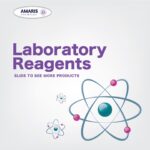
 LABORATORY EQUIPMENT & APPARATUS
LABORATORY EQUIPMENT & APPARATUS
 Fertilizers
Fertilizers Plant Growth Regulators
Plant Growth Regulators Soil Conditioners
Soil Conditioners Animal Feed Additives
Animal Feed Additives Biostimulants
Biostimulants Dough Conditioners
Dough Conditioners Flour Treatments
Flour Treatments Fat Replacers
Fat Replacers Preservatives (baking)
Preservatives (baking)
 Surfactants (cleaning)
Surfactants (cleaning) Builders
Builders Bleaching Agents
Bleaching Agents Enzymes
Enzymes Solvents (cleaning)
Solvents (cleaning) Fragrances
Fragrances